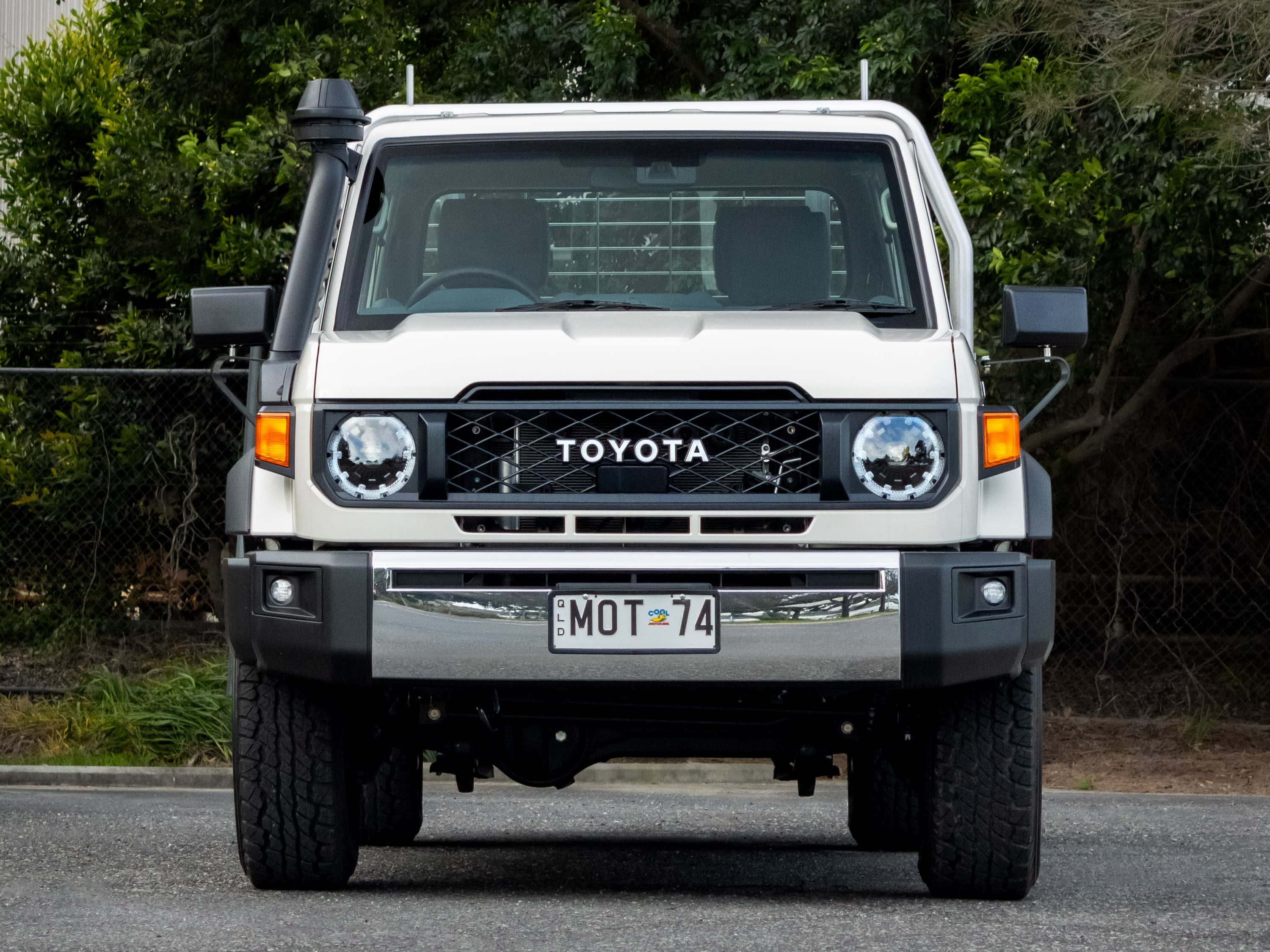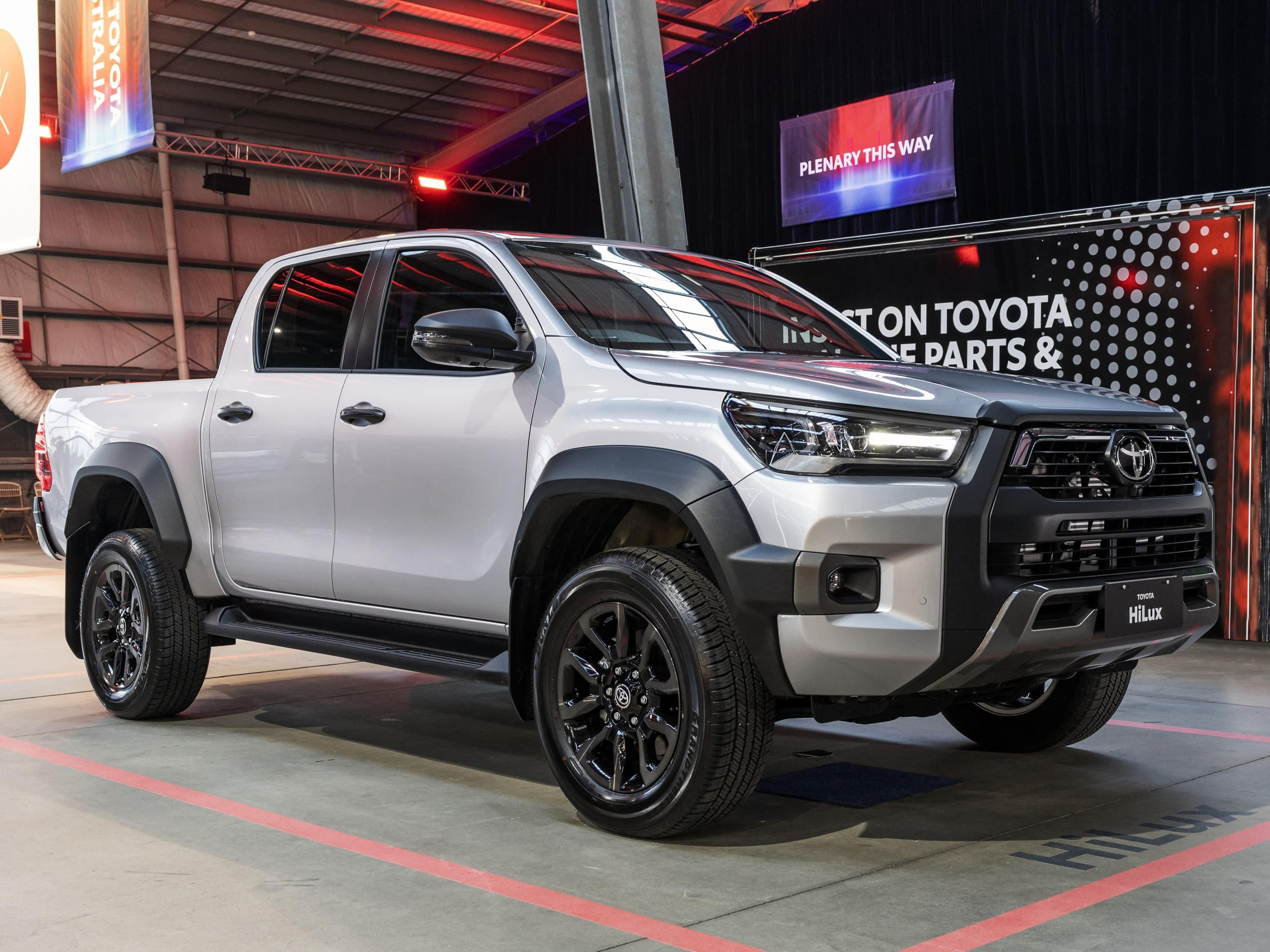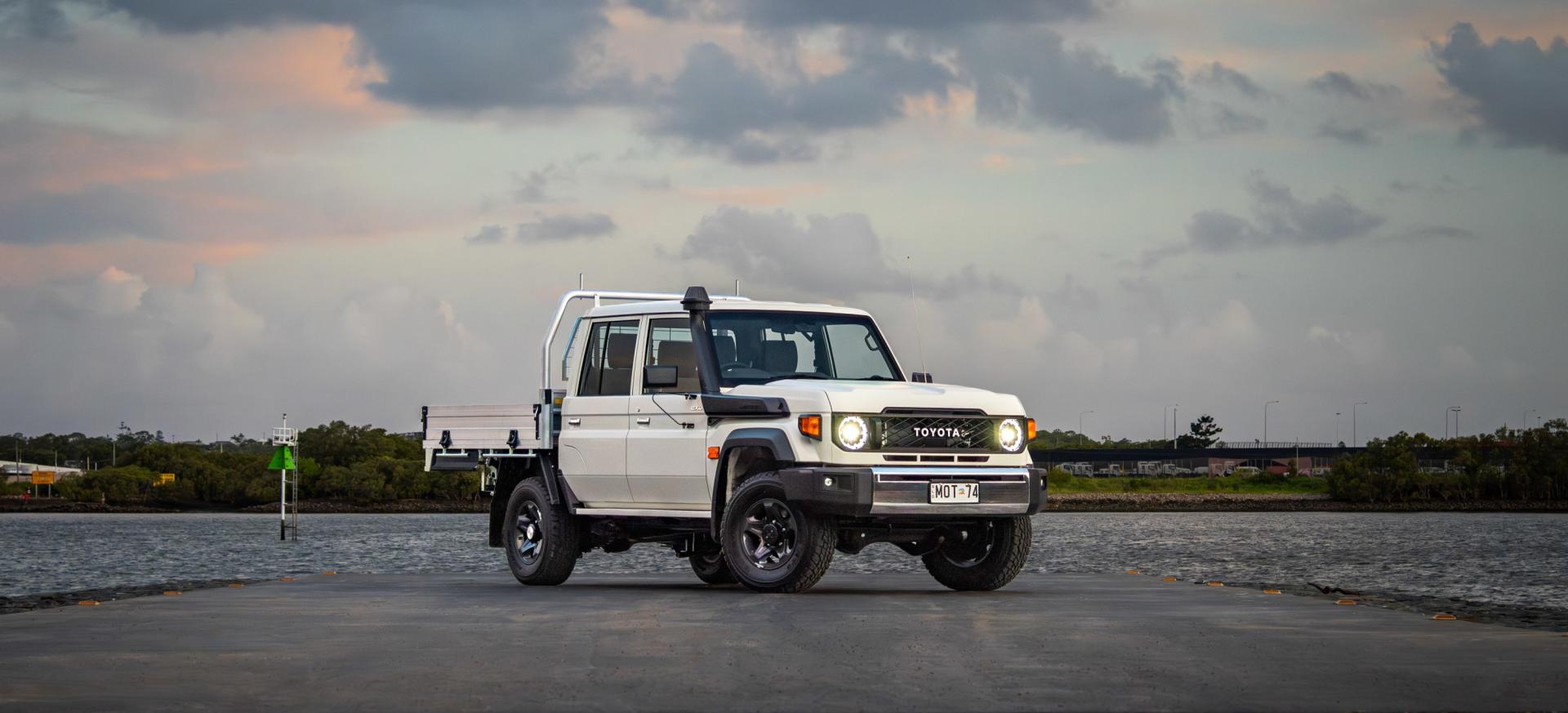
Review: 2024 Toyota LandCruiser 70 Series
Posted in Vehicle Reviews
Review: 2024 Toyota LandCruiser 70 Series
If it ain't broke, don't fix it. Toyota has lived by this for the past 40 years with the iconic LandCruiser 70 Series. Since 1984, this enduring workhorse has seen minimal changes as time has shown the formula was right on the money from the start.
For the most part, Toyota is sticking to this mantra for the latest facelift with a characteristically no-frills approach, however, there is one major addition to the range in the form of a new drivetrain and transmission.
We recently spent the weekend testing the latest addition to the 70 Series range to see how well it stands up to the undying V8 juggernaut.
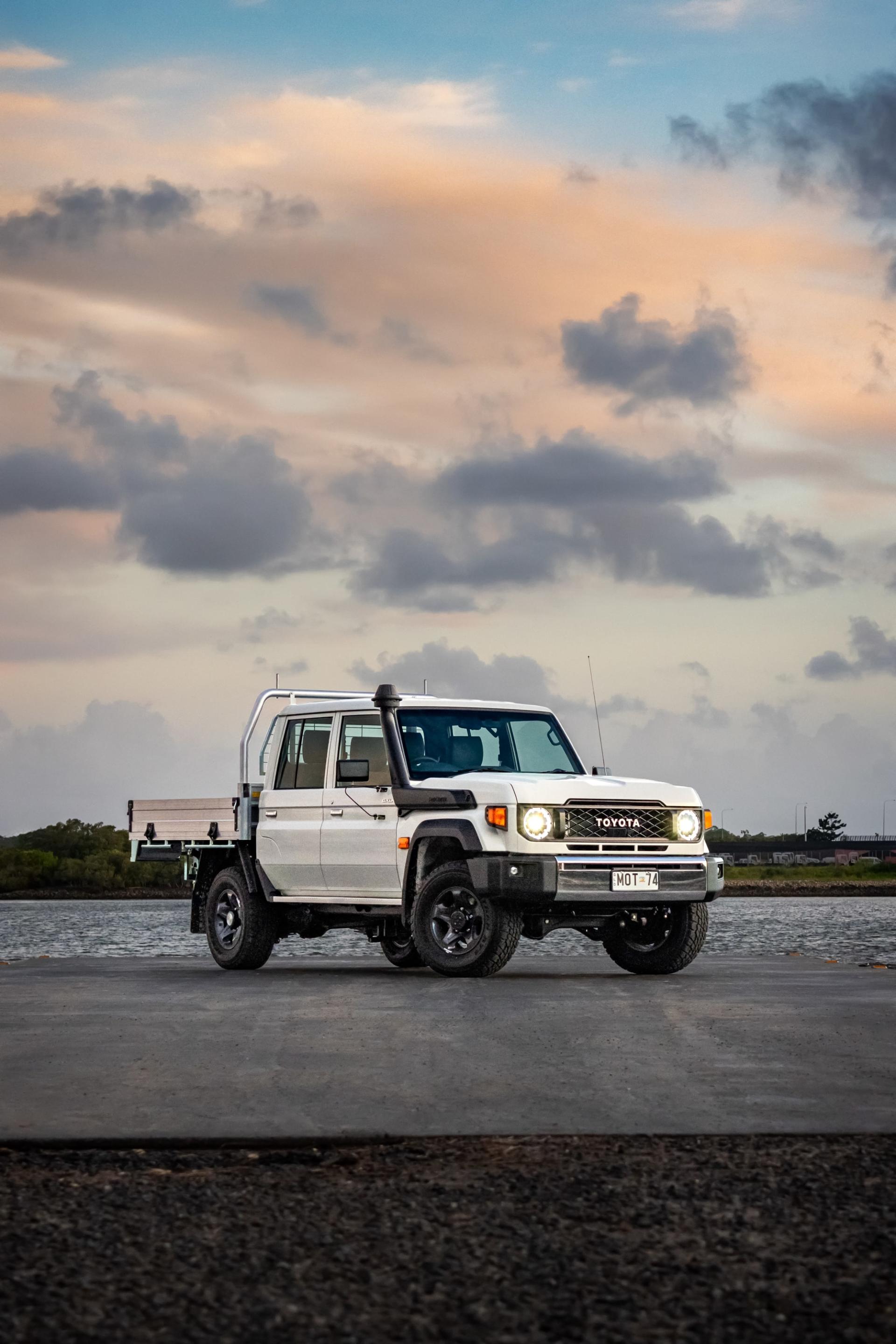
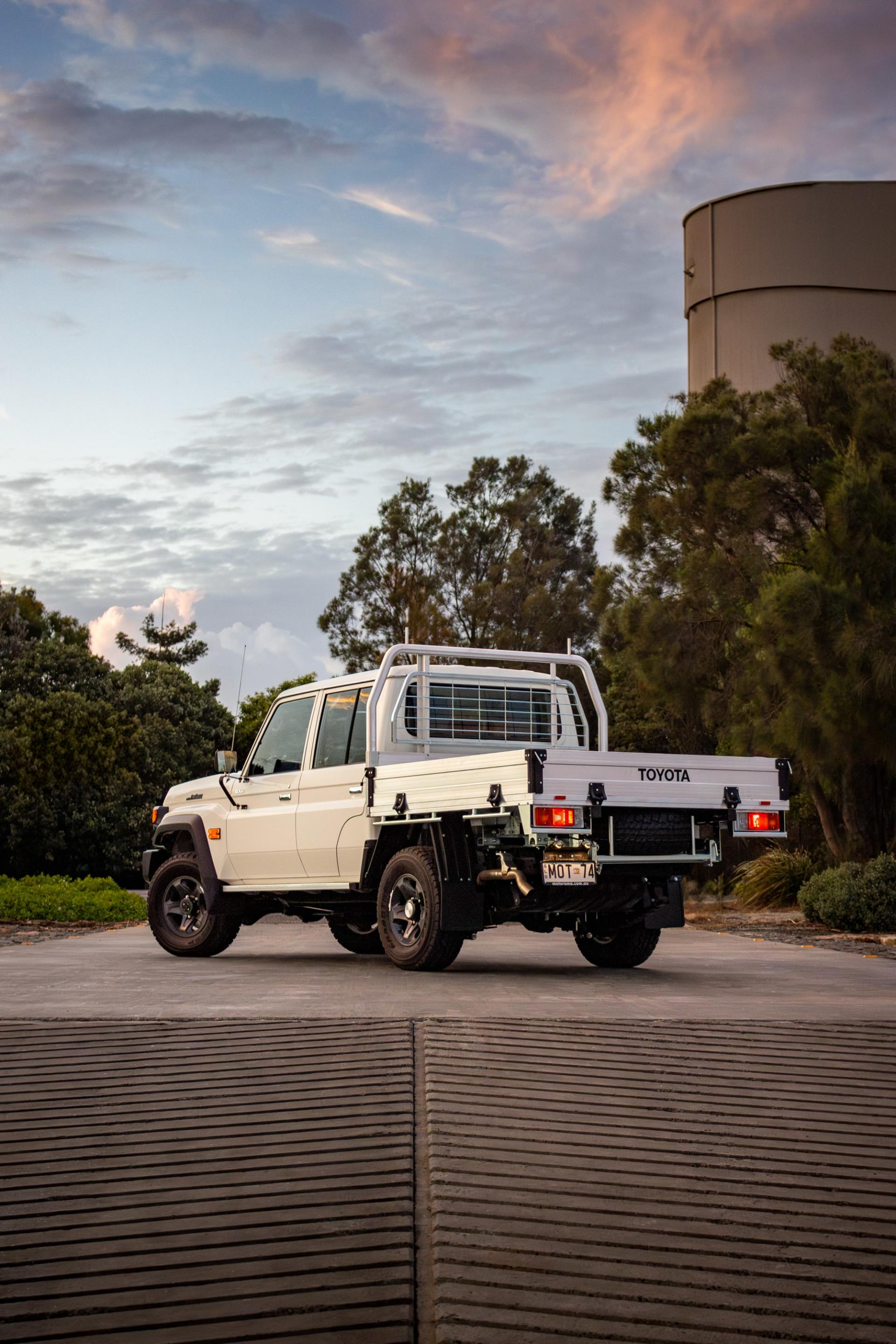
What are the improvements?
Upon entering the 70 Series, you immediately notice how heavy-duty it is - largely due to the vigour needed to shut your beefy steel door. The seats look simplistic but are, in fact, supremely comfortable which is ideal for the extensive kilometres this model is built to travel. The 70 Series has never been known to feature modern creature comforts, so you'll be shocked to see the USB-C outlet incorporated into the infotainment setup. You'll be even more shocked to know it connects to Apple CarPlay and Android Auto giving you the full infotainment experience.
A major improvement factor is the inclusion of Toyota Safety Sense and the stack of advanced safety features that forewarn, alert and protect those both inside the car and out. This includes Lane Departure Alert, Pre-Collision Safety system with pedestrian and daytime cyclist detection as well as Road Sign Assist. The 70 Series comes with a beefy set of ventilated disc brakes that confidently stop the big 4x4 without worry.
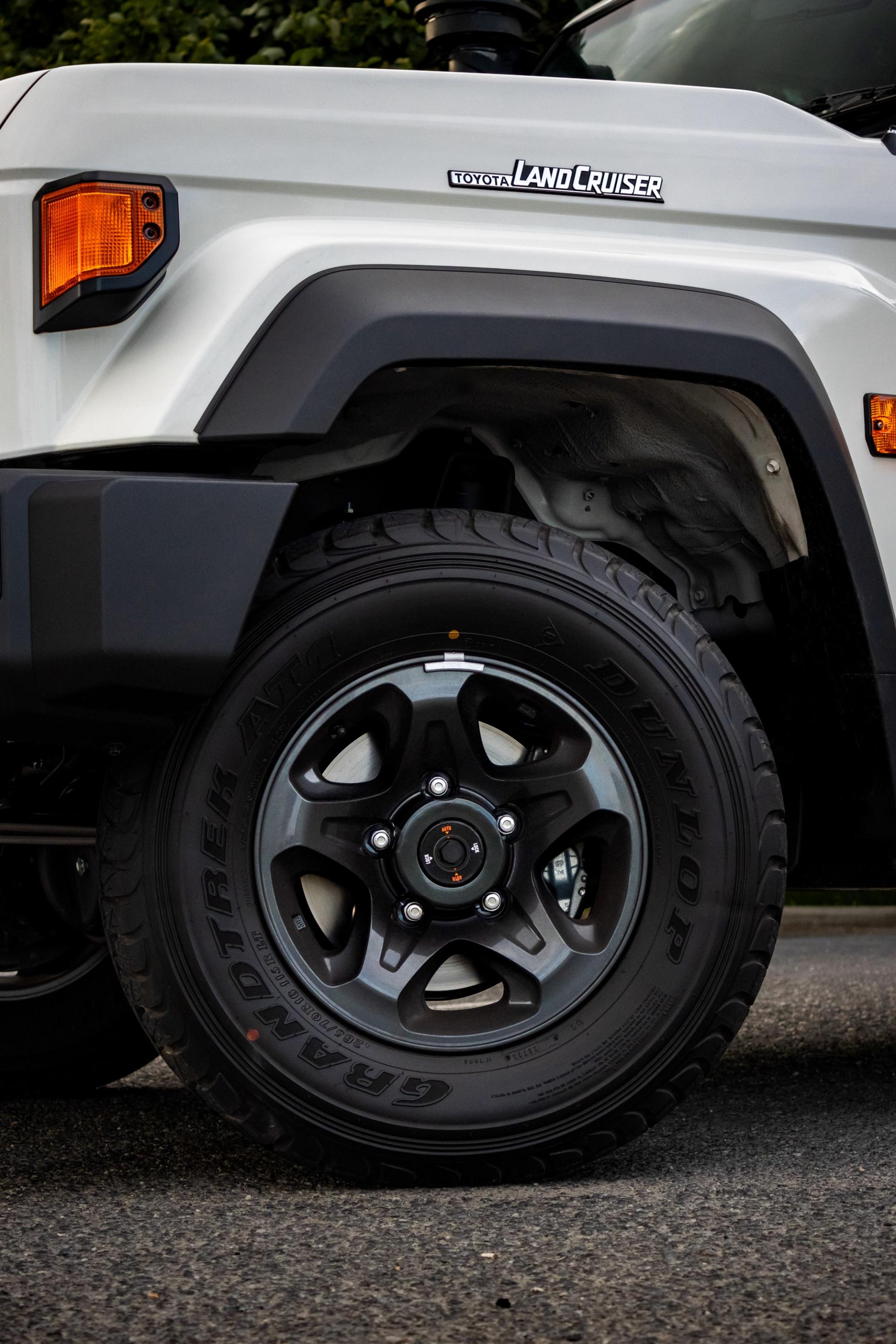
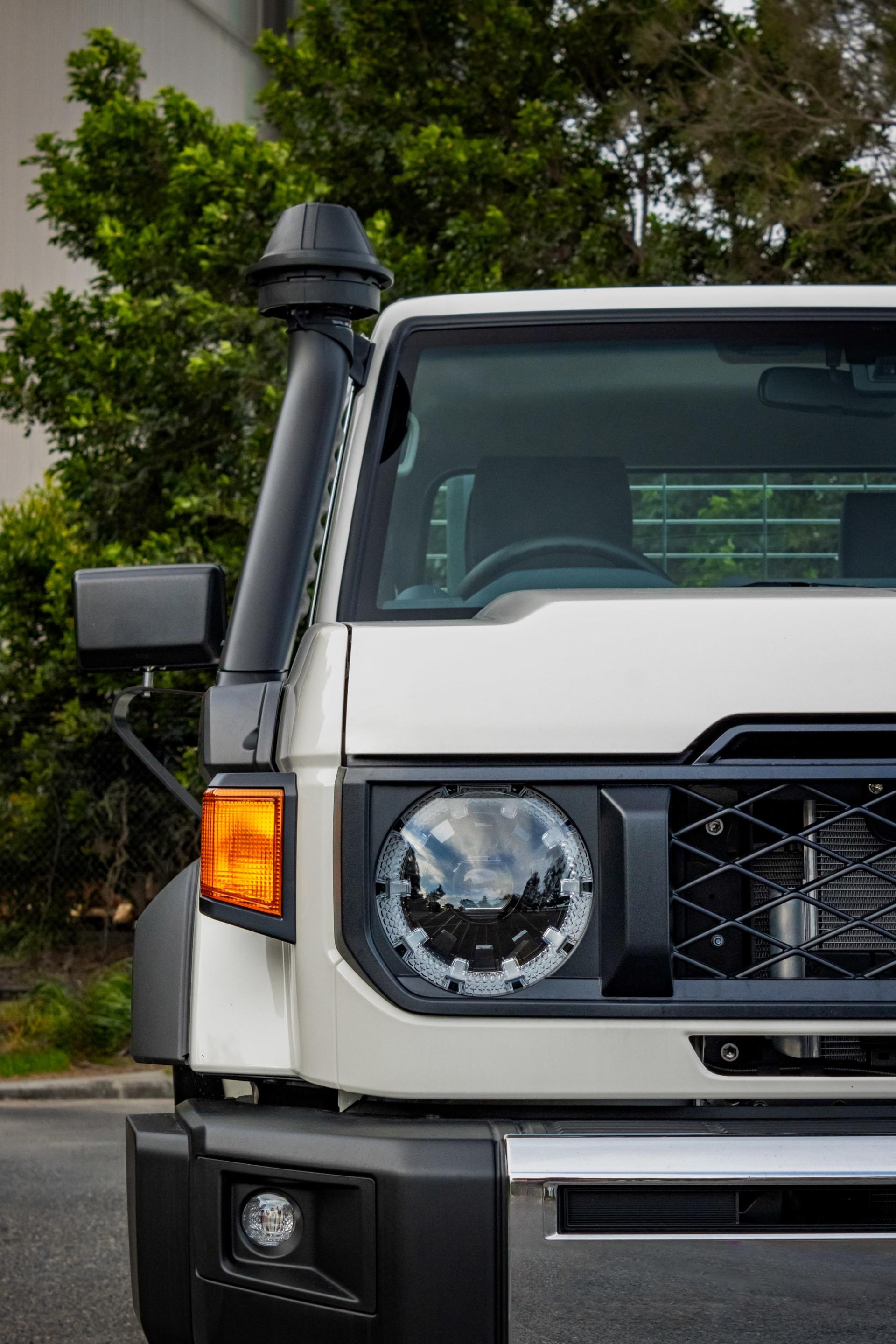
The fuel capacity is also massive with a single 130-litre tank offering between 1200km and 1300km of range depending on the engine. As someone coming from a commuter car, it's rather astonishing to have your fuel gauge showing half a tank yet the estimated range displaying a solid 600km.
While it's evident that the maneuverability of the 70 Series is geared more towards a rural setting than the urban one in which we tested, evidenced by the extra wide turning circle. On the other hand, steering is considerably light and nimble meaning the heft of the vehicle is largely unnoticed.
Visibility is also exceptional with tall windows and high seating position providing an excellent view of every corner of the vehicle. Night-time visibility has also been improved with a new set of LED headlights that hark back to those of the original 78 Series.
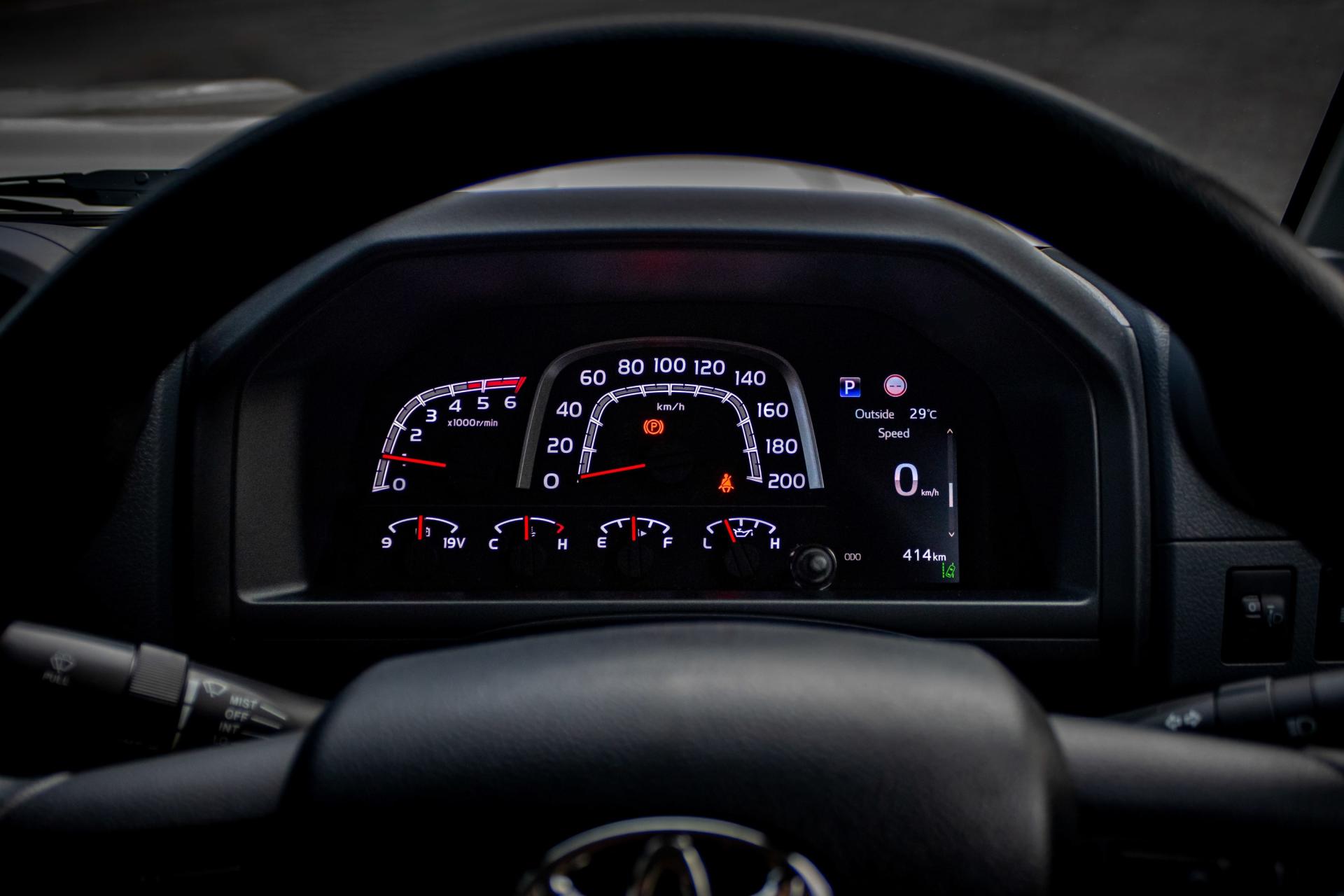
An automatic winner
Gone are the days when you needed a manual licence to helm the mighty 70 Series - Toyota has lowered the entry barrier with a new six-speed automatic transmission opening up the model to an audience that may have been previously put off by the row-your-own gearbox.
Toyota has also adapted its mass-produced 4-cylinder 2.8-litre turbo-diesel engine - found in the Hilux, Prado and Fortuner - to suit the brute of the 70 Series. Despite hauling a couple hundred kilos of extra steel over the Hilux, the peppy 4-cylinder still manages to move the 70 Series with a bit of spirit - at odds with the reputation cultivated by the burly V8.
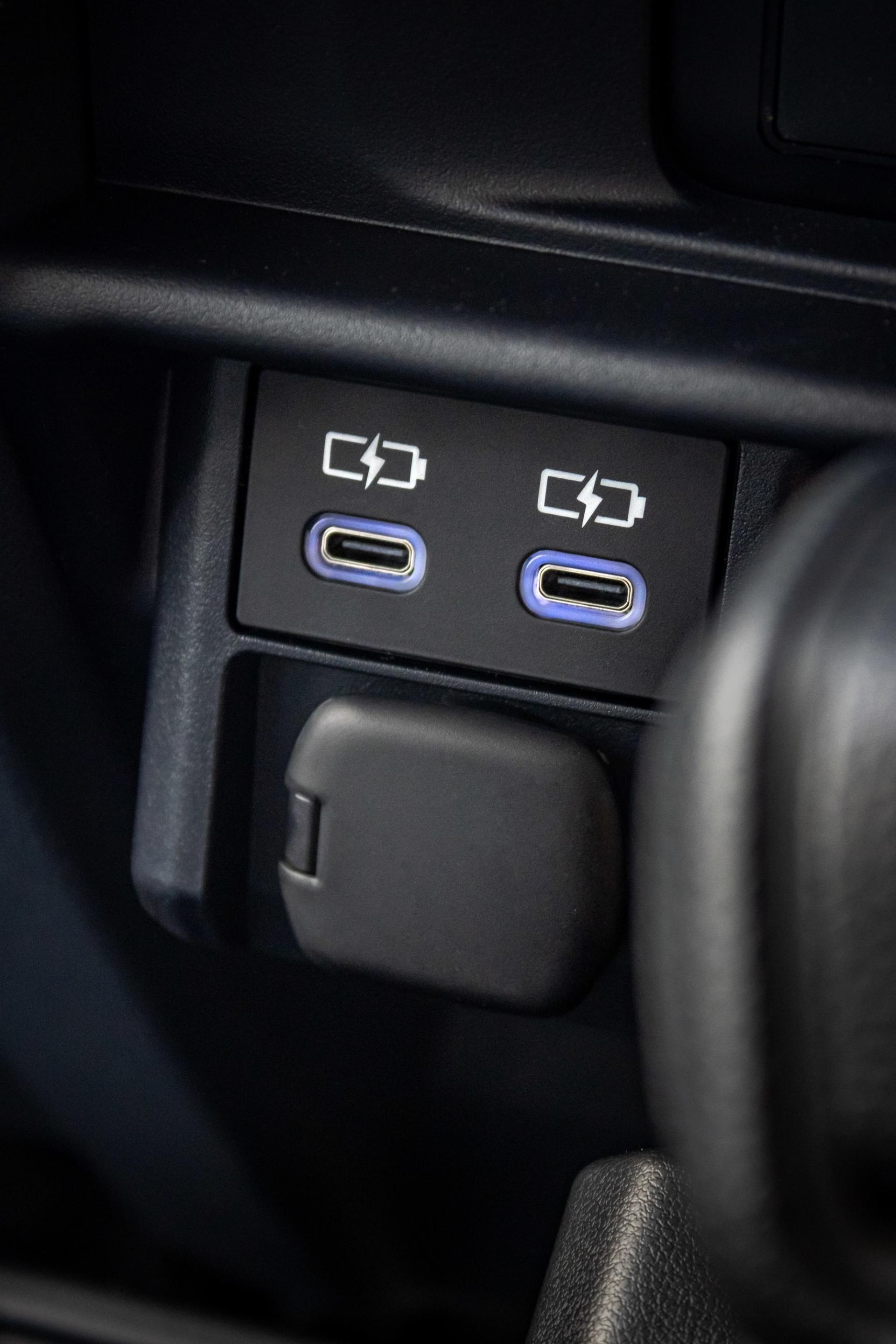
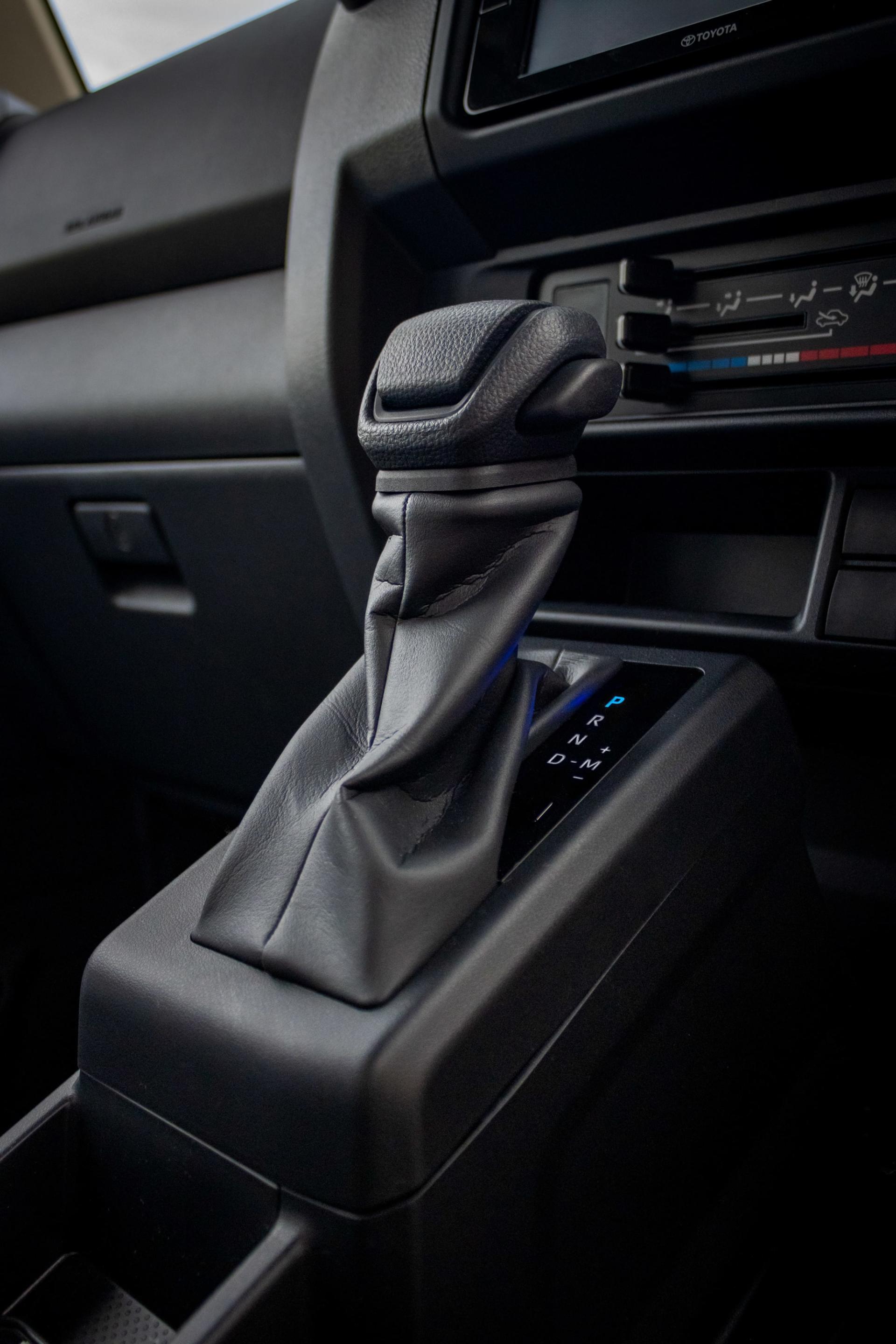
Dare to Compare
Despite the new drivetrain option, hasn't completely flipped the script and ditched the traditionalists. The facelifted 70 Series maintains the option of the everlasting 4.5-litre V8 turbo-diesel powerplant and 5-speed manual gearbox meaning there may be a small internal rivalry brewing.
While the V8 brings a compelling history of reliability and endurance, the 4-cylinder shows how far engine technology has come with almost identical power and torque figures to its big brother - 150kW/500Nm and 151kW/430Nm respectively.
When it comes to fuel consumption, it's no surprise that, with half the number of cylinders, the four-cylinder saves more than a litre of diesel over 100 kilometres compared to the V8. The suspension setup is exactly the same for both models, so any 4-cylinder buyers still get a solid front axle and rear leaf springs.
There's also no sacrifice in terms of towing either - both drivetrains can drag a class-topping 3,500kg.
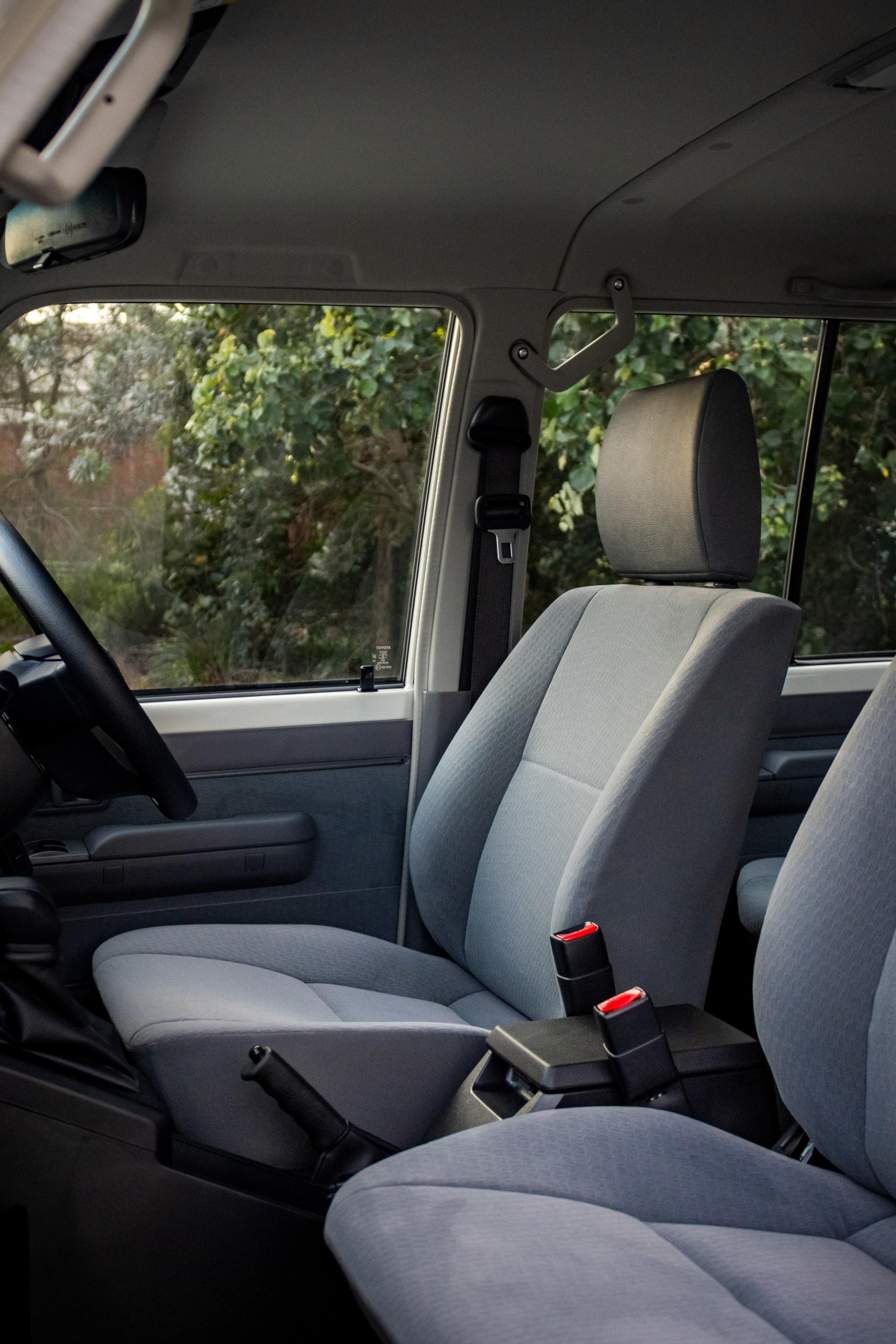
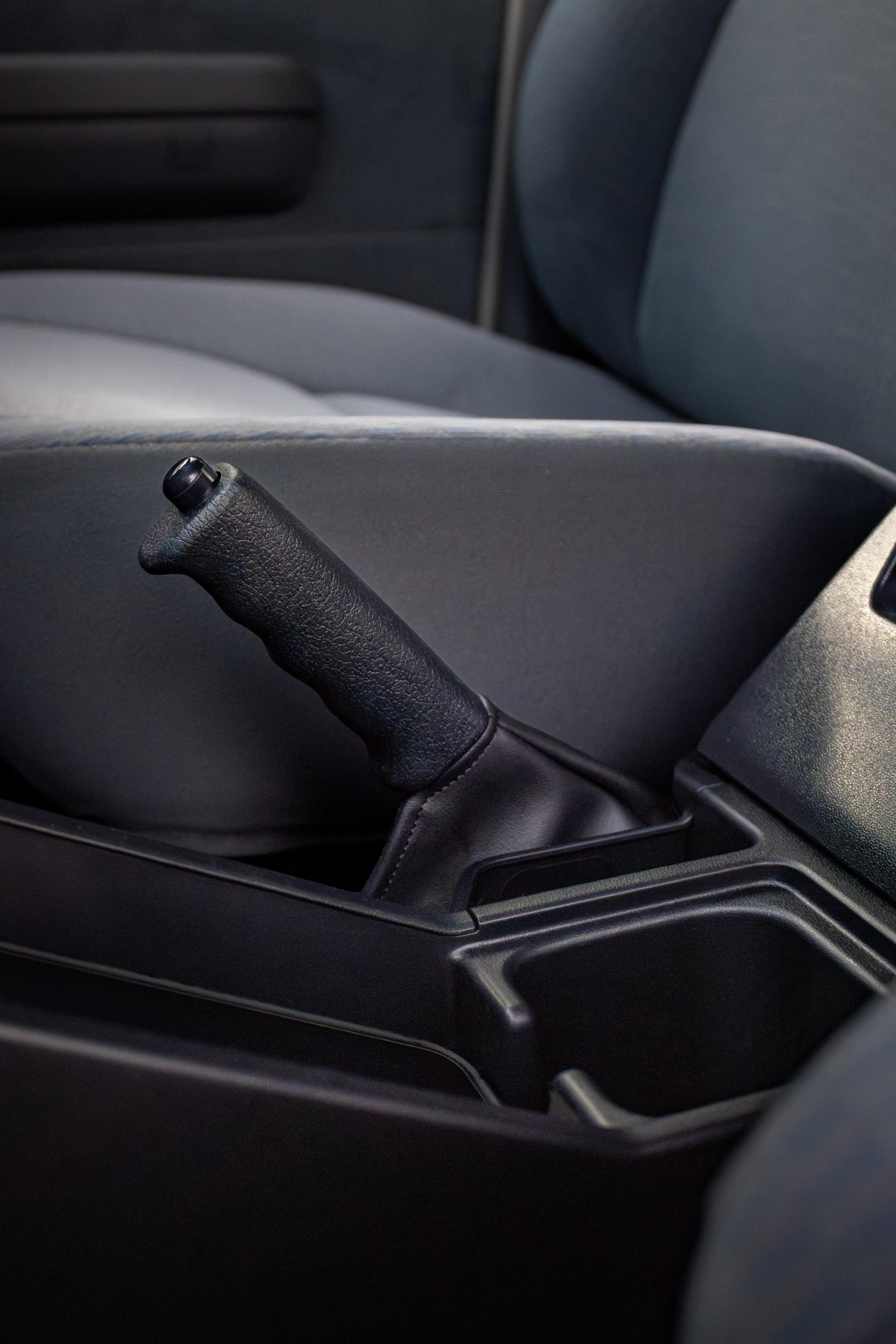
Pricing
With the new facelift and drivetrain comes new pricing for the 70 Series. Across the range, the 4-cylinder automatic costs $4,100 less than its V8 manual counterpart.
In addition to this, the auto option is available in an extra trim (specifically in the Wagon form) at the base of the price scale meaning the cheapest new 70 Series you can now purchase is a 4-cylinder automatic at $75,900 (excl. on-roads).
If you're after the front and rear diff locks, expect an extra $1,500, while premium paint options are an extra $675.
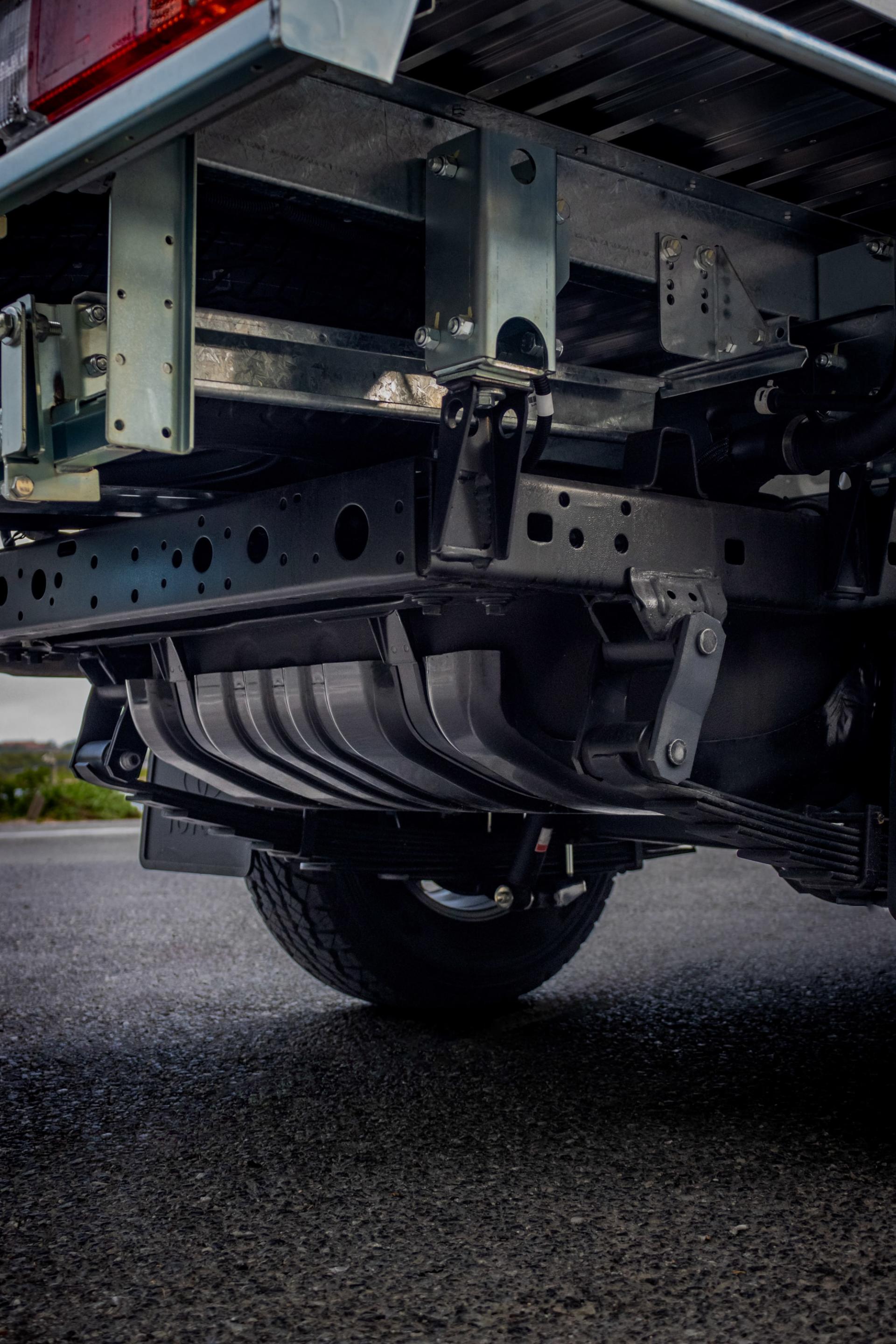
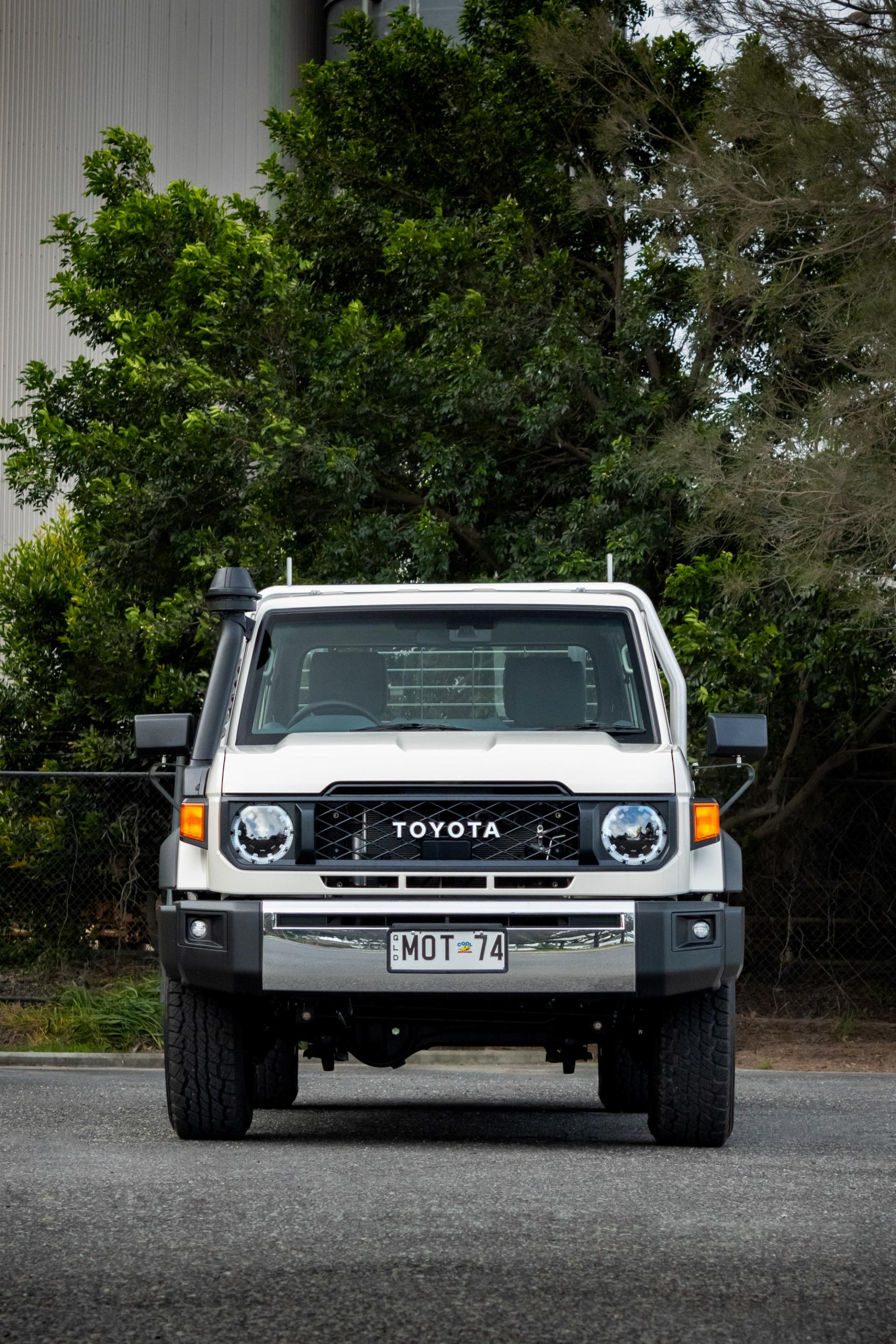
Toyota Makes it Easier
Overall, the biggest selling point of the 4-cylinder automatic 70 Series is how it has lowered the barrier of entry into this revered model. Both the initial outlay is cheaper than its V8 brother, while ongoing costs are also reduced due to better fuel economy and lower rego costs.
The ubiquitous nature of automatic transmissions these days means fewer drivers are opting for a manual licence so the only way into a 70 Series is with the new auto option.
On top of this, opting for the automatic option doesn't mean you're sacrificing anything from the V8. It comes with the same towing capacity, almost identical power and torque outputs, all the same interior features and the same rugged chassis.
On the flipside, the traditionalists are still offered their beloved V8 and all the classic 70 Series appeal as well as a few more safety features for that extra peace of mind.
If you're still tossing up whether to take the plunge into the 4-cylinder, or stick to the tried and true V8, get in touch with the team at Motorama Toyota to organise a test drive and get a first-hand experience.

